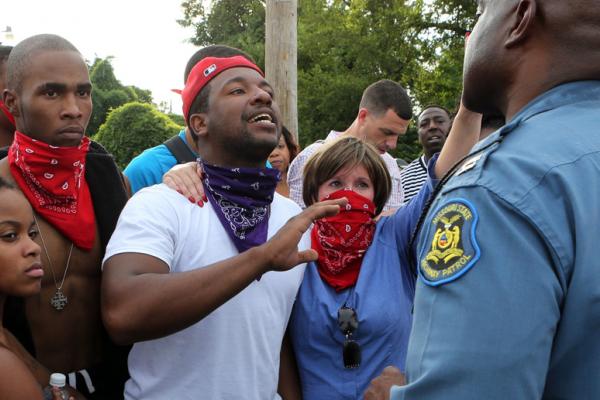The first time the public heard the name Renita Lamkin was probably the day she was shot.
In early August, four days after Michael Brown was killed by Officer Darren Wilson, Lamkin, a pastor, stood with Ferguson protesters, attempting to mediate. Police had warned the crowd to disperse and in an effort to buy a little time, Lamkin shouted, “They’re leaving!”
“That’s when I felt a pop in the stomach,” Lamkin said of the rubber pellet that hit her. The pellet left a ghastly wound — large, deep and purplish — and created a social media frenzy.
Tweet after tweet showed Lamkin, 44 and white, wearing a T-shirt with an image of a cross that she lifted up just slightly to show off the ugly bruise.
Lamkin said she didn’t really have a plan when she ventured out to Ferguson but that “the whole being shot thing was probably the best thing that could have happened.” The injury had cemented Lamkin’s role in the struggle for racial equality.
“They say, ‘You took a bullet for us.’ My sense is …We’re in this together, and I was playing my role,” Lamkin said.
Read the Full Article

